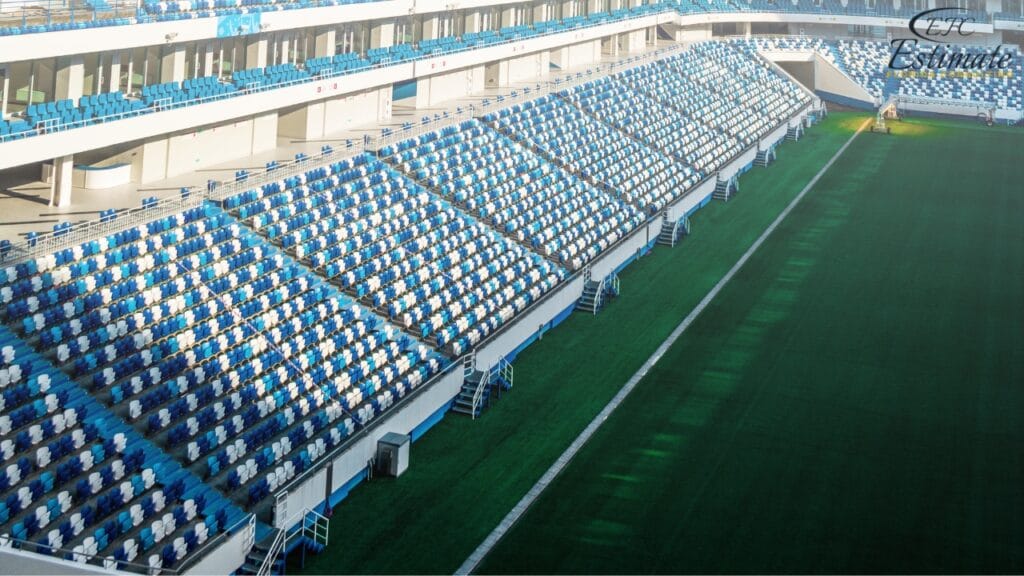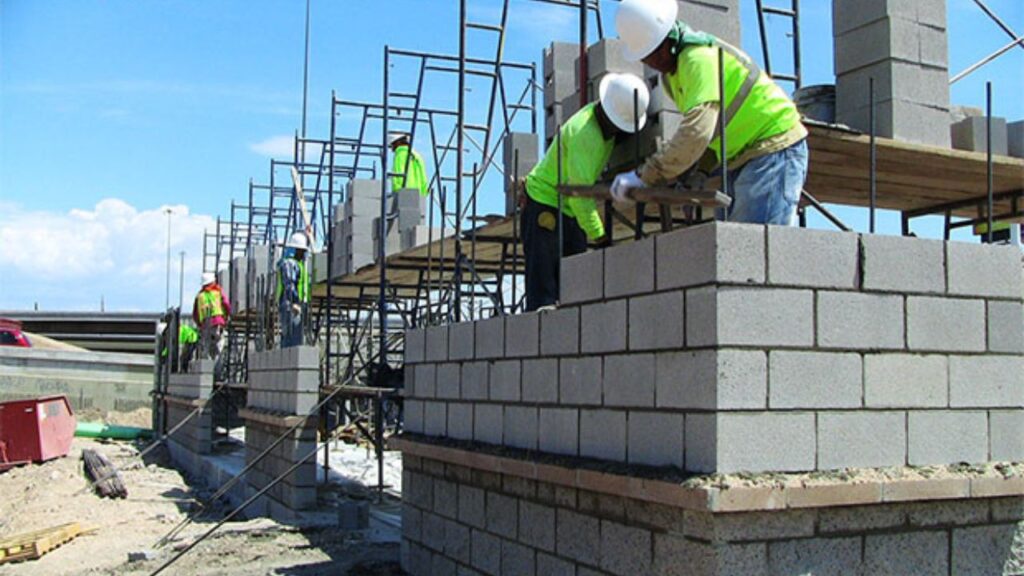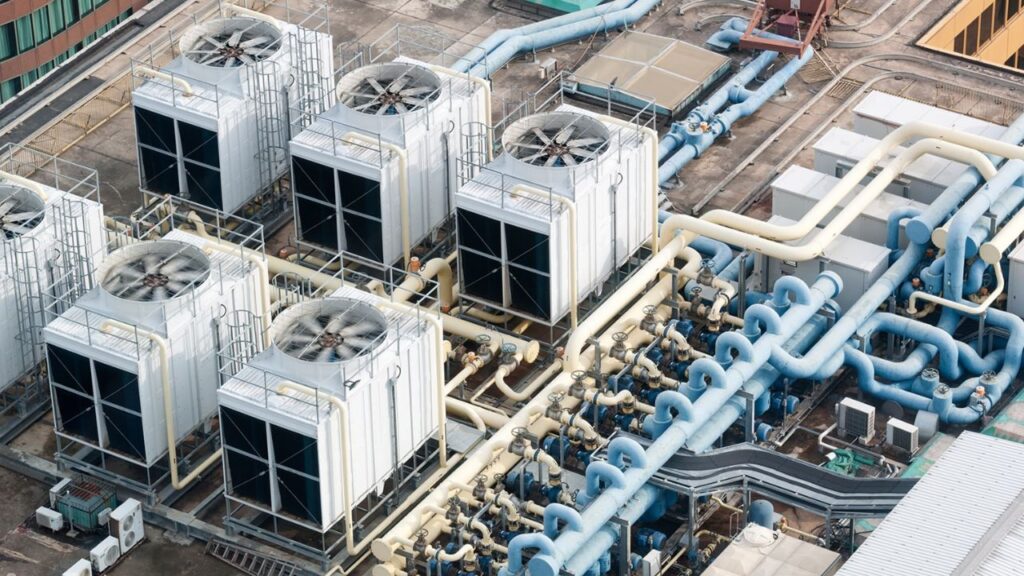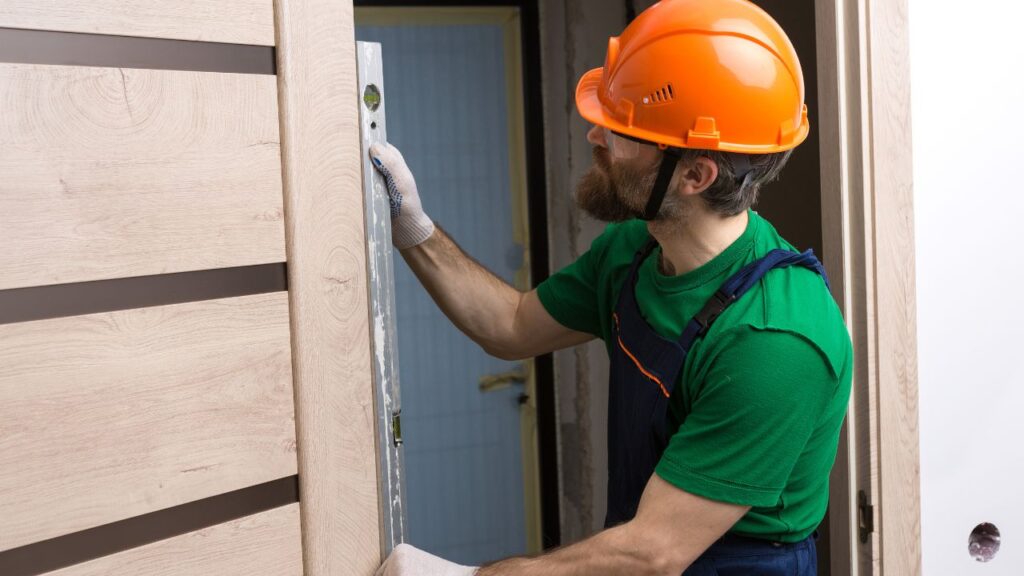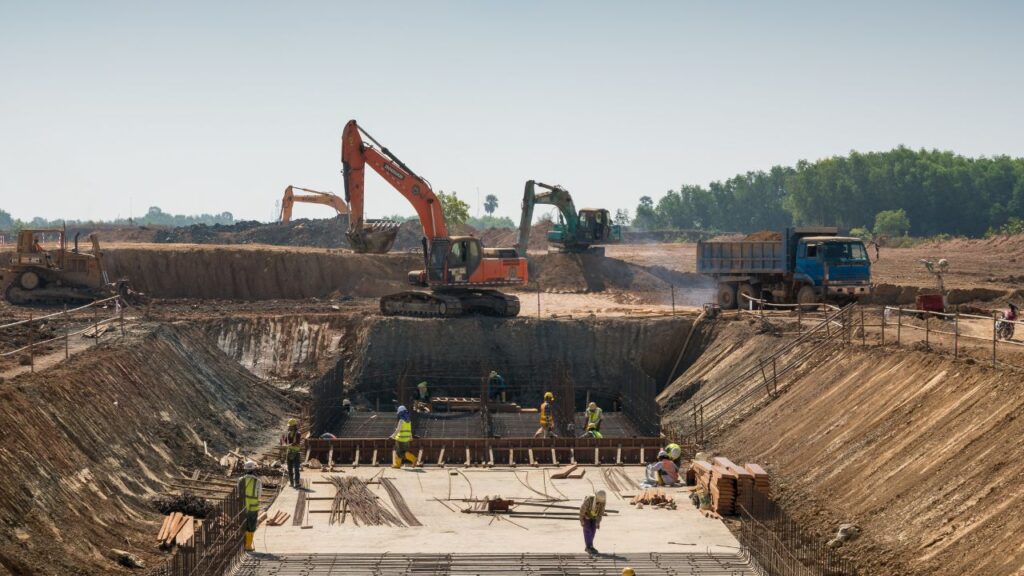- Homepage
- Cost To Build a 10,000 Seat Stadium
Cost To Build a 10,000 Seat Stadium
Leading provider of stadium construction services
The demand for multi-purpose venues that can host a variety of events—from sports and concerts to community gatherings—has been rising in Florida. Cities like Miami, Orlando, and Tampa are leading the charge in developing these facilities, recognizing that a well-designed stadium can significantly contribute to local economies, create jobs, and promote tourism. Constructing a 10,000-seat stadium is not just about erecting a building; it’s about creating a vibrant space that fosters community engagement and provides unforgettable experiences.
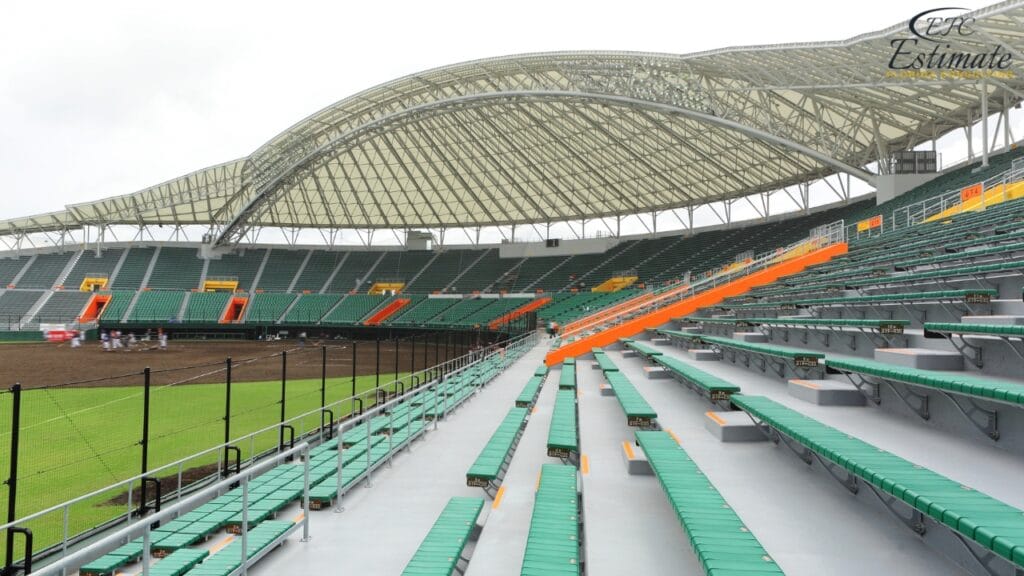
Cost Breakdown of Building a 10,000-Seat Stadium
Building a stadium involves various components, each contributing to the overall cost. Below is a detailed breakdown of the primary costs involved in constructing a 10,000-seat stadium.
Site Development Costs
Site development includes land preparation, grading, and basic infrastructure setup. Proper site development ensures a solid foundation for the stadium and prepares the area for future construction activities.
Component | Cost Estimate |
Land Acquisition | $1,200,000 – $6,000,000 |
Site Preparation | $240,000 – $600,000 |
Basic Infrastructure | $120,000 – $360,000 |
Construction Costs
The bulk of stadium expenses will come from construction costs. This includes the structure, seating, and roof. The construction phase requires meticulous planning and execution to ensure safety, compliance with building codes, and high-quality standards.
Component | Cost Estimate |
Structural Framework | $4,800,000 – $7,200,000 |
Seating | $600,000 – $1,200,000 |
Roof Construction | $1,200,000 – $2,400,000 |
Infrastructure and Utilities
Infrastructure includes utilities like electricity, water, and sewage systems. These are essential for the stadium’s operation and must be designed to handle the anticipated capacity.
Component | Cost Estimate |
Electrical Systems | $360,000 – $720,000 |
Plumbing | $240,000 – $480,000 |
HVAC Systems | $300,000 – $600,000 |
Interior Finishes and Seating
Interior finishes and amenities significantly affect the overall experience for attendees. Quality finishes enhance the aesthetic appeal and comfort of the stadium, ensuring a positive experience for fans and event-goers.
Component | Cost Estimate |
Interior Finishes | $480,000 – $960,000 |
Concessions and Restrooms | $240,000 – $600,000 |
VIP and Luxury Boxes | $600,000 – $1,200,000 |
90% More Chances to Win Ceramic tile Bids with
Our Estimate!
Technology and Equipment
Modern stadiums are equipped with advanced technology for broadcasting and audience engagement. High-quality audiovisual systems and reliable Wi-Fi are essential for enhancing the spectator experience.
Component | Cost Estimate |
Audio-Visual Systems | $600,000 – $1,200,000 |
Scoreboards | $360,000 – $840,000 |
Security Systems | $180,000 – $360,000 |
Permits and Legal Fees
Permits and legal considerations are necessary for compliance with local regulations. Ensuring all necessary permits are acquired before construction begins can prevent costly delays.
Component | Cost Estimate |
Building Permits | $120,000 – $240,000 |
Legal Fees | $60,000 – $120,000 |
Factors Influencing Stadium Construction Costs
Location and Site Preparation
The location of the stadium plays a pivotal role in overall construction costs. Factors such as land acquisition, site grading, and access to existing infrastructure (roads, utilities) can significantly impact expenses. For example, urban locations might require more extensive site preparation and compliance with city regulations, leading to higher costs. Additionally, proximity to public transport and parking facilities is crucial for the stadium’s accessibility and can further influence site preparation costs.
- Land Acquisition: Prices can vary based on the city and neighborhood. In metropolitan areas, land costs can range from $1 million to over $5 million, with prime locations in downtown areas fetching higher prices.
- Site Preparation: This includes grading, drainage, and landscaping, typically costing between $200,000 and $500,000. The complexity of the site, such as the need for environmental remediation or extensive grading, can further increase these costs.
Design and Architecture
The design phase is crucial for determining the aesthetic and functional elements of the stadium. Hiring an experienced architect who understands the needs of various stakeholders can enhance the quality of the final structure but can also add to the cost. Thoughtful design incorporates fan experience, operational efficiency, and sustainability, aligning with contemporary trends that prioritize eco-friendliness and energy efficiency.
- Architectural Fees: Professional fees typically range from 5% to 15% of the total construction costs. High-profile architects may command higher fees, reflecting their expertise and reputation.
- Design Features: Complex designs with unique features (e.g., retractable roofs, luxury suites) can increase costs by 10% to 20%. The inclusion of environmentally sustainable design elements, such as solar panels and green roofs, can also add to initial costs but may provide long-term savings and benefits.
Materials and Construction Methods
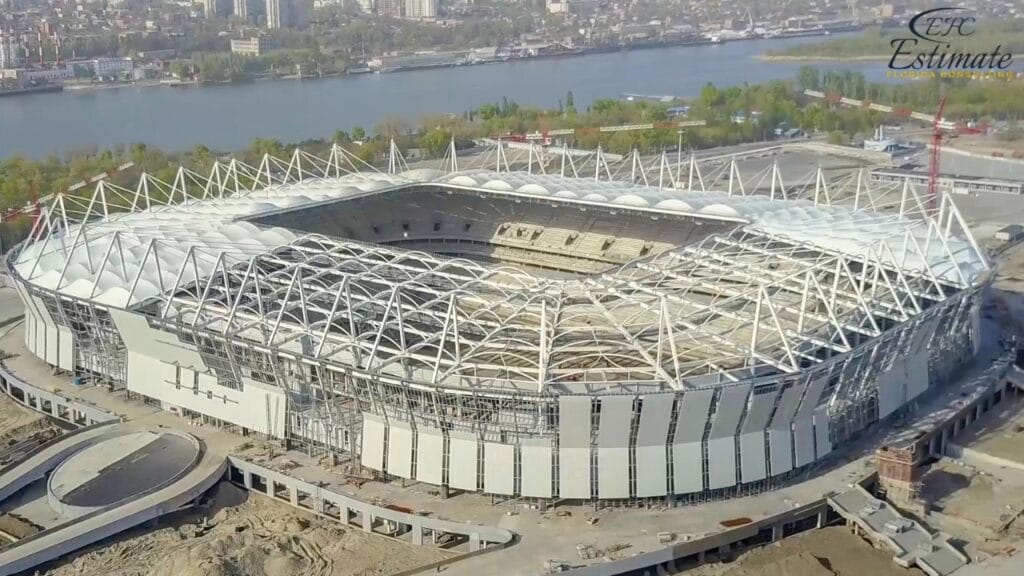
The type of materials chosen and the construction methods employed directly affect the overall cost. Quality materials enhance durability and aesthetics but can raise expenses. Innovative construction methods, such as modular or prefabricated components, can save time and labor costs but may have different material cost considerations.
- Common Materials: Concrete, steel, and aluminum are commonly used, with costs ranging from $100 to $400 per square foot. High-performance materials that offer greater durability or energy efficiency may come at a premium but can provide better long-term value.
- Construction Methods: Prefabrication can reduce labor costs and construction time, potentially saving 10% to 15% on total expenses. However, careful coordination is required to ensure that prefabricated components fit precisely during assembly.
Labor Costs
Labor costs in Florida vary by region and can significantly impact the total construction budget. Factors like union agreements, local demand for skilled workers, and the availability of subcontractors influence rates. Effective project management can help control labor costs by optimizing schedules and reducing downtime.
- Labor Costs: Average construction labor costs can range from $30 to $80 per hour, depending on the trades involved. Skilled labor for specialized tasks, such as electrical work or HVAC installation, may command higher wages, emphasizing the need for experienced professionals to ensure quality workmanship.
Financing Options for Stadium Projects
Financing a stadium project can be complex, given the high costs involved. Various funding sources can be explored, including public funding, private investments, sponsorship deals, and fundraising campaigns.
We Provide 3D Rendering Services!
For Stadium and Other Projects
Turnaround time is 1-2 days.
Win More Projects With Us
Public Funding
Many stadium projects receive financial support from local governments. This funding can come from tax revenues, bonds, or grants specifically allocated for infrastructure development. Public funding can help offset construction costs, making projects more viable for communities.
Private Investments
Private investors, including corporations and wealthy individuals, can also contribute to stadium funding. They may see potential returns through sponsorship deals, advertising, and increased business opportunities tied to the stadium’s operation.
Sponsorship and Naming Rights
Sponsorship deals can significantly bolster a stadium’s revenue stream. Companies may pay substantial sums for naming rights, advertising space, or exclusive partnerships. This revenue can help cover both construction costs and ongoing operational expenses.
Fundraising Campaigns
Community-driven fundraising campaigns can mobilize local support and engagement. These campaigns can include initiatives like crowdfunding, merchandise sales, or even events to raise awareness and generate interest, fostering a sense of community ownership of the stadium.
Project Management Tips for Stadium Construction
Effective project management is essential to ensure the timely and budget-compliant completion of a stadium project. Here are some key strategies to consider:
Assemble a Skilled Team
Gather a team of experienced professionals, including architects, engineers, and project managers, who understand the intricacies of stadium construction. Their expertise can help anticipate challenges and ensure compliance with local regulations.
Develop a Comprehensive Timeline
Create a detailed project timeline that outlines each phase of construction, from initial planning to final inspections. Regularly updating the timeline and communicating with stakeholders can help keep the project on track.
Get Acquainted
Implement Cost Control Measures
Utilize budgeting tools and software to monitor expenses throughout the construction process. Identifying potential cost overruns early can allow for timely adjustments to keep the project within budget.
Maintain Open Communication
Foster open communication between all stakeholders, including contractors, subcontractors, and investors. Regular updates and feedback loops can facilitate problem-solving and improve overall project coordination.
Prioritize Safety and Compliance
Adhere strictly to safety regulations and building codes. Implementing rigorous safety measures not only protects workers but also helps avoid costly legal issues and project delays.
Future Trends in Stadium Construction
As technology and community needs evolve, so too do the trends in stadium construction. Here are some anticipated trends shaping the future of stadiums:
Sustainability
Sustainable construction practices are gaining momentum, with many stadium projects incorporating green building certifications like LEED. This includes the use of renewable materials, energy-efficient systems, and environmentally friendly landscaping.
Enhanced Fan Experience
Stadiums are increasingly focusing on creating memorable experiences for fans. This includes the integration of advanced technology, such as augmented reality and mobile apps for ticketing, concessions, and engagement.
Flexible Spaces
With the rise of multi-use facilities, stadium designs are adapting to accommodate various events, including concerts, conventions, and community gatherings. Flexible seating configurations and adaptable spaces are becoming essential elements of modern stadiums.
Get 5 New Projects in the Next 7 Days With Our System
Smart Technology Integration
The integration of smart technologies can improve operational efficiency and enhance the fan experience. Features such as automated ticketing, real-time crowd management systems, and enhanced Wi-Fi connectivity are increasingly becoming standard in new stadium designs.
Conclusion
Constructing a 10,000-seat stadium in Florida is a complex and costly endeavor that requires meticulous planning, expert execution, and an understanding of the myriad factors influencing costs. From site development and construction to financing and management, every aspect plays a crucial role in the successful completion of a stadium project. By comprehensively analyzing costs and strategies, stakeholders can better navigate the construction landscape, ensuring that the new venue serves its community effectively and remains a vibrant part of Florida’s cultural fabric for years to come.
Frequently Asked Question
The average cost can range from $30 million to $80 million, depending on various factors such as location, design, and materials used.
The construction timeline can vary widely, typically ranging from 18 months to 3 years, depending on the complexity of the design and other logistical factors.
Common funding sources include public funding, private investments, sponsorships, and community fundraising efforts.
Local communities can engage in fundraising initiatives, provide feedback during planning processes, and participate in public meetings to express their needs and concerns.
Safety, compliance with regulations, and maintaining open communication among stakeholders should be prioritized throughout the construction process to ensure success.
Comprehensive Trade-Specific Estimates
At Estimate Florida Consulting, we offer detailed cost estimates across all major trades, ensuring no part of your project is overlooked. From the foundation to the finishing touches, our trade-specific estimates provide you with a complete and accurate breakdown of costs for any type of construction project.

Testimonials
What Our Clients Say
We take pride in delivering accurate, timely, and reliable estimates that help contractors and builders win more projects. Our clients consistently praise our attention to detail, fast turnaround times, and the positive impact our estimates have on their businesses.
Estimate Florida Consulting has helped us win more bids with their fast and accurate estimates. We trust them for every project!

Steps to Follow
Our Simple Process to Get Your Estimate
01
Upload Plans
Submit your project plans, blueprints, or relevant documents through our online form or via email.
02
Receive Quotation
We’ll review your project details and send you a quote based on your scope and requirements.
03
Confirmation
Confirm the details and finalize any adjustments to ensure the estimate meets your project needs.
04
Get Estimate
Receive your detailed, trade-specific estimate within 1-2 business days, ready for your project execution.


